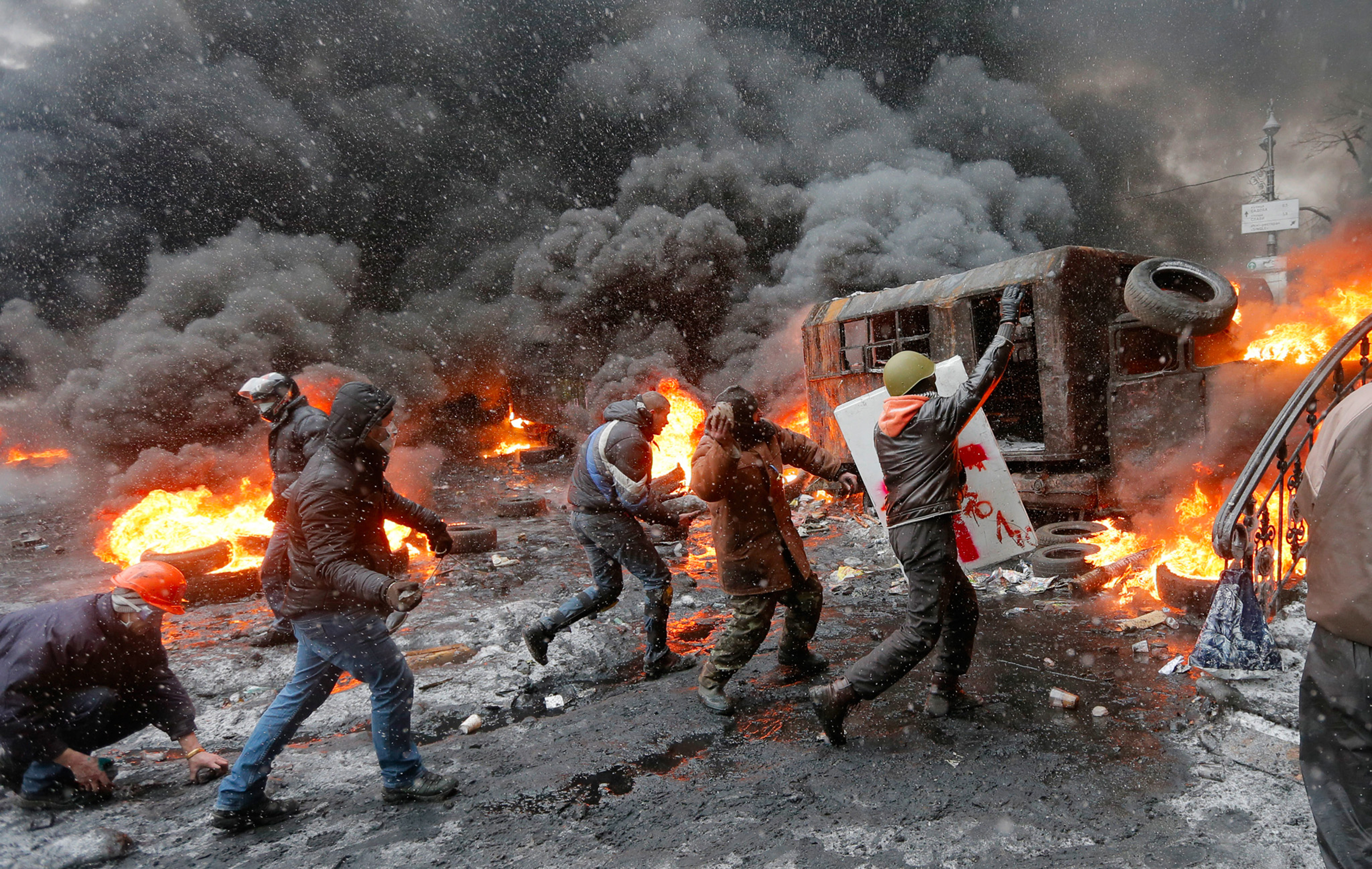Niall McGlynn
Staff Writer
In the recent discussion and analysis of the situation in Ukraine regarding how to “punish” Russia for violating the country’s sovereignty and for its military aggression in the Crimea, the arguments have painted the crisis as a test of strength between the West and Russia. The questions are all about how will the West, how will America, how will Barack Obama appear to Russia if they back down? What will happen to the West’s credibility in other situations if we allow Russia to “win” in the Ukraine? How can we claim to be a bastion of democracy and freedom if we ignore the new Ukrainian government’s pleas to move closer to us, to join us?
All of these questions ignore the most important aspect of the crisis in Ukraine: the consequences of any action for the Ukrainian people themselves. It is true that people have risen up and overthrown their corrupt and pro-Russian government, but this does not make them pawns in a geopolitical chess match, nor does it mean that a full drive towards EU/NATO membership and other tokens of being in the West is necessarily the best course for their country. The fact remains that all of Ukraine’s energy imports and the larger part of its trade come from Russia. It might be easy now to encourage the Ukrainians to defy Moscow, but what about in eight months’ time, when temperatures start to fall below zero and the Russian’s turn off the lights and the heat? They have done it before, and they will not hesitate to do it again.
In Kiev, where winter temperatures average -6 degrees centigrade with record lows of -27, cutting off heat and electricity could literally be fatal, to say nothing of other more remote areas of the country. Ukraine’s economy is already heavily in debt and struggling. Breaking trade and economic links with Russia, which has been the country’s traditional financial backer, could cause a massive slump, with associated drops in income and employment. Long lines at shops and welfare offices coupled with no power or heat are real world problems which are utterly divorced from the calculations of politicians in Moscow, Brussels and Washington. They are also far more important. The West’s credibility and standing in the world are simply non-issues when compared to the very real and very likely human suffering that will be caused if relations between Russia and Ukraine continue to deteriorate.
The fact of the matter is that this crisis must be resolved through dialogue between the Ukraine and Russia, without outside interference. The two countries are too closely linked economically, culturally and socially for them to have a clean separation of paths and goals. For better or for worse, the Ukraine and Russia will have a close and complicated relationship for the foreseeable future. Attempting to completely restructure this tangle of economic, political and social ties in such a short period will lead to hardship and suffering for ordinary Ukrainians. Intangible international relations goals are simply not worth that price. If the Ukrainian people want to chart a path towards the West then they can and will chart that path themselves, but they will have to keep in mind their relationship with their neighbours to the east. Their efforts will not be helped by inflammatory rhetoric from western national leaders, and policies that can only worsen relations between the west and Russia and between the Ukraine and Russia.
What Western, and particularly European countries now need to do is focus on helping to construct a dialogue between Ukraine and Russia, and avoiding precipitous moves like sanctions or economic retaliation against Russia. It goes without saying that all economies are fragile, but the economies of Europe and Ukraine are particularly so. Starting a round of economic tit-for-tat with Russia is going to hurt everyone and achieve nothing except inflict a very cold winter on a lot of people. The Russians may be aggressive, militaristic and expansionist neighbours, but they are our neighbours. We cannot afford to start pointless disputes with them over issues of appearance or credibility. This of course goes doubly for the Ukraine.
This crisis will be, must be settled by diplomacy. The consequences if it is not may be far more dire than imagined. The only question is, how long will it take for everyone to stop posturing and sit down to deal? For the sake of the cold winters in Kiev, we can only hope that the answer comes very soon.






